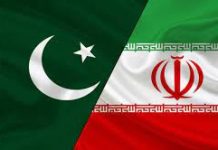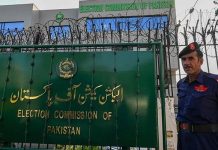ISLAMABAD: Last week, representatives from Pakistan, Russia, China, and Iran, all with significant interests in Afghanistan, silently registered a joint protest with the interim Afghan Taliban government.
The complaint centered on the perceived failure to adequately control the activities of various terrorist groups within Afghanistan, as disclosed by a reliable source familiar with the matter to The Express Tribune on Sunday.
The joint protest occurred during a conference held in Kabul on January 29, attended by envoys from the four nations. It had been previously agreed upon that these countries would collectively express their concerns about terrorist activities to the Taliban regime.
The initiative for a joint protest originated from Pakistan, believing that a united front by key neighbours could influence the Afghan Taliban to address the issue.
However, the source revealed that the Taliban cleverly convened a regional conference, inviting other nations to counteract the move. Officials from India, Turkey, Indonesia, and certain Central Asian states attended alongside representatives from China, Pakistan, Russia, and Iran. Pakistan’s special envoy on Afghanistan, Ambassador Asif Durrani, was unable to travel to Kabul due to illness. In his absence, Pakistan’s charge d’affaires in Kabul joined special envoys from Russia, Iran, and China to quietly express reservations about the use of Afghan soil by terrorist groups.
While China and Russia may not have taken a harsh public stance, private concerns persist over terrorist activities on Afghan soil
China identifies the East Turkestan Islamic Movement (ETIM), operating from Afghanistan, as a severe security threat. Russia and Iran also express worries about the potential spillover impact of certain terrorist activities inside Afghanistan
Pakistan has been increasingly vocal in recent months, reminding the Afghan Taliban to fulfill their commitments and prevent the use of Afghan soil by terrorists.
A recent UN report confirmed that the outlawed Tehreek-e-Taliban Pakistan (TTP) had strengthened since the return of Taliban rule, aligning with Pakistan’s concerns. The report highlighted that while the Afghan Taliban generally held a “sympathetic” view of the TTP, some members joined the anti-Pakistan terrorist outfit out of religious duty.
Despite being in power for over two years, no country has officially recognised the Taliban government, citing insufficient progress on certain issues. However, China recently took an unprecedented step by accepting the Taliban’s full-time ambassador in Beijing, a move viewed in diplomatic circles as tacit recognition.
Observers of Chinese diplomacy believe this decision does not signify a complete abandonment of reservations over the Taliban government. Instead, China sees the potential to incentivise the Taliban to take action against terrorist outfits through diplomatic engagement.
Some in Pakistan hope that this could work to their advantage, as China may use this leverage to persuade Kabul to address Islamabad’s concerns. –Agencies





